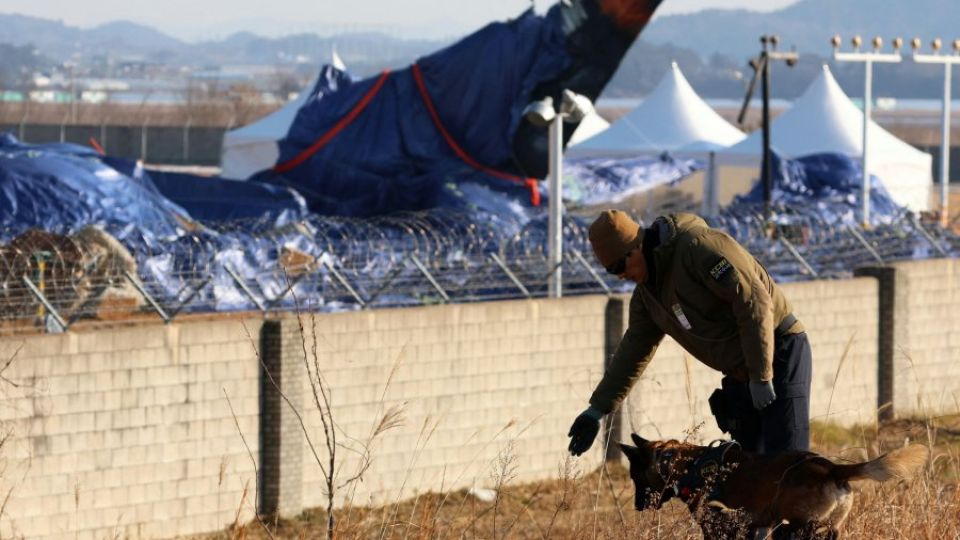January 8, 2025
SEOUL – Park Sang-woo, minister of land, infrastructure and transport, has expressed his intention to resign over the Jeju Air plane crash that claimed 179 lives, following public backlash concerning the ministry’s oversight of the concrete embankment that likely contributed to the deadly explosion.
“As the minister of the primary department overseeing aviation safety, I feel the deepest sorrow and offer my sincerest apologies regarding the Jeju Air plane tragedy,” Park said during a press briefing at the Sejong Government Complex on Tuesday. “I am thinking of taking appropriate actions as a responsible official and discussing the right time and method to (carry out such actions).”
When asked about the “appropriate actions,” Park replied, “(I meant to say) to offer my resignation after managing the current crisis and when the ongoing political situation (stabilizes).”
Park’s decision to resign comes regardless of whether the Transport Ministry failed to exercise its diligence over the concrete mound housing the localizer device, which is considered as potentially a key factor that led to the explosion of the plane due to it not being made of easily breakable materials. The device, used to guide an aircraft during landing, was supported by over 10 concrete pillars and a concrete slab some 30 to 90 centimeters thick.
Recognizing the complexity of domestic laws on the localizer structure and the extensive regulations set by the International Civil Aviation Organization, Park stressed that the ministry plans to address and improve any shortcomings in interpreting related laws.
The ministry had claimed there was no restriction on the material housing the localizer because it was located outside the safety zone of the Muan International Airport, where the tragic accident occurred. However, one of the safety zone-related rules outlined by the ministry specifies that the area must be extended to the point where the localizer is installed.
After a representative for the bereaved families claimed that the ongoing investigation into the accident could be tampered with due to the Transport Ministry’s involvement, Park said the director of the Aviation and Railway Accident Investigation Board resigned earlier in the day, and Joo Jong-wan, head of aviation policy at the Transport Ministry, was removed from the board’s investigation.
From Dec. 30, the day after the accident, the board has been part of a joint investigation with the US National Transportation Safety Board and the Federal Aviation Administration. So far, the cockpit voice recorder from the crashed aircraft has been transcribed after data extraction, and the damaged flight data recorder was sent to the US on Monday for analysis.
“We will discuss with the investigation committee ways to disclose the transcripts and results of the analysis within the scope that does not get in the way of the investigation,” said Park.
In addition to a joint investigation by Korea and the US, a police investigation is underway aimed at Jeju Air and Muan International Airport.


